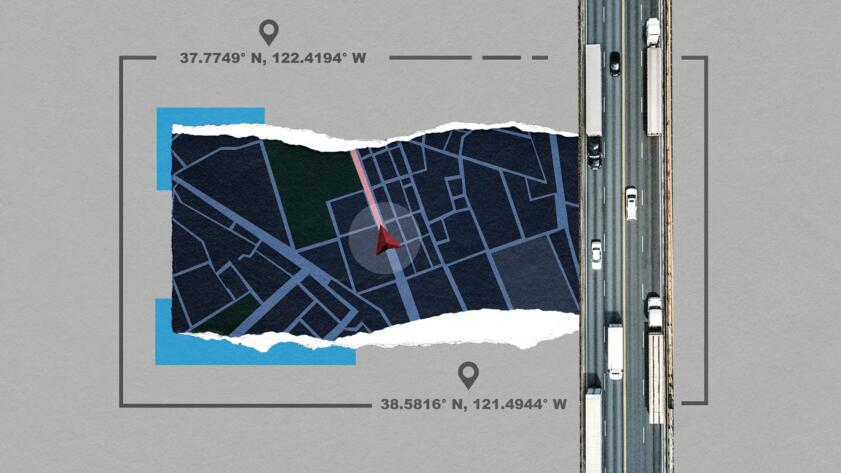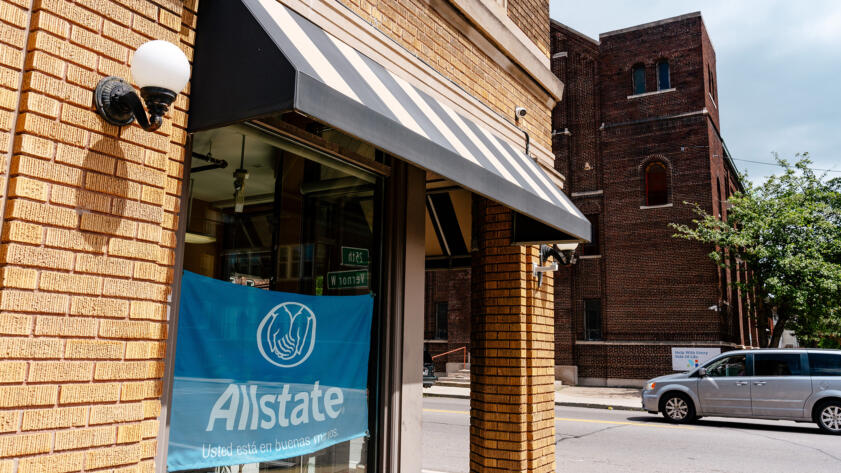As part of the reporting process for The Markup’s investigation into inequitable insurance pricing, we dug through more than 52,000 pages of documents that insurance companies filed with government regulators detailing their pricing algorithms.
As a result, we learned about the many different ways you can save some money on your car insurance; insurers have built-in discounts that you could be taking advantage of. These discounts reward customers who could save insurers money in the long run by, say, taking steps to reduce their risk of getting in costly crashes or opting into features that lower companies’ administrative costs.
One important caveat: This description of insurer discounts is based on an analysis of pricing policies used by these companies in the state of Michigan between May 2022 and August 2023. These companies could be offering different discounts in different states or could have changed their policies in Michigan since our analysis period ended.
This guide should be taken as a general set of ideas for reducing your insurance prices. But, as they say on the road, your mileage may vary.
Tie Your Policies Up in a Bundle
Insurance companies really, really, really want you to have multiple policies with them at the same time.
What better audience for a company’s home insurance than its satisfied car insurance customers? Combining multiple policies like this is called “bundling,” and insurers love it because it not only allows them to save on account processing and service costs but also serves as a great marketing tool.
All seven insurers in our Michigan analysis had at least one bundling discount. One insurer, Auto-Owners, had four. Allstate’s auto insurance gave customers a discount for buying another kind of policy from the company, like homeowners or life insurance.
Some companies, like Auto-Owners, offered discounts for having multiple vehicles on the same policy, like Auto-Owners; others, like Allstate and Liberty Mutual, had discounts for customers with multiple motorcycles.
Join a Club
Insurers often offer discounts for customers who are members or customers of certain organizations.
Allstate’s motorcycle plan gave discounts to people who were “members of a certified motorcycle organization which promotes safe motorcycle driving programs.” Allstate also offered discounts to folks who are members of a community essential to the company’s success: its own employees and their spouses.
Other companies, like Auto-Owners, offered discounts for policyholders who belong to certain banks or credit unions, alumni associations, business associations, chambers of commerce, colleges or universities, professional associations, hospital systems, country clubs, gyms or health clubs, rotary clubs, labor unions, and hundreds of other institutions.
The list of qualifying groups differed for each insurer, so you’ll have to ask them to see what you’re eligible for. Credit unions were a common qualifying group. If you’re a member of a credit union and looking for insurance, ask if the credit union has discount relationships with any insurance companies.
Put Safety First
Insurance companies price your policy on how risky of a driver they think you’ll be, and how likely they think your vehicle will protect its passengers from serious injuries, the latter of which can be very expensive to cover.
As a result, companies offer discounts to customers who take steps to keep themselves and their vehicles safe from both damage and theft.
Allstate’s motorcycle insurance offered a discount to riders who had taken a motorcycle safety course in the past three years. The company’s auto insurance had discounts to people who pledge (in writing) to always wear their seatbelt.

Privacy
Car Tracking Can Enable Domestic Abuse. Turning It Off Is Easier Said Than Done
Internet-connected cars allow abusers to track domestic violence survivors after they leave
Safety features installed in vehicles can also trigger discounts. Auto Club offered discounts for cars that are equipped with airbags, as well as anti-theft devices. Other safety features that triggered discounts were antilock brakes, electronic stability control mechanisms, and motorized seatbelts.
While many companies offer discounts based on vehicles’ safety features, there are other characteristics about your car that can trigger discounts.
Auto-Owners, for instance, offered discounts for vehicles stored inside a garage when not in use (rather than on the street), if only one vehicle was on the policy, or if the vehicle was a company car furnished for personal use.
Allstate gave a “new car discount” for vehicles with a model year in the past decade or so.
Consider Your Past Insurers
Many insurance companies give you a discount if they have information suggesting you were a safe driver before you signed up with them.
In our reporting, we saw customers get discounts for having auto or motorcycle insurance immediately before signing up for their current policy. Insurers liked it when customers had continuous coverage without disruption from one insurer to the next, and they frequently gave discounts for customers who signed up for coverage, or even just requested a quote, some time before it actually took effect.
Sometimes, those discounts were rewarding customer loyalty within a company’s larger umbrella. Progressive’s motorcycle plan offered discounts for customers whose previous insurer was also part of the Progressive Group of Insurance Companies.
Auto-Owners and Citizens both had discounts that trigger if a customer under the age of 30 used to be covered under their parents’ or legal guardians’ policy from the same company.
Monitor Your Driving
Insurance companies largely determine your level of risk through inference based on your personal characteristics. How much does it cost to insure other people who live in your neighborhood? What about people who drive the same car you do?

The Breakdown
Who Is Collecting Data from Your Car?
A firehose of sensitive data from your vehicle is flowing to a group of companies you’ve probably never heard of
Increasingly, insurers have been taking advantage of telematics—data collection technologies like smartphones and devices connected to the vehicles themselves—as a way to get direct information about how people drive so they don’t only have to rely on inferential data.
While there are cases when this data has been provided to insurers surreptitiously, as New York Times reporter Kashmir Hill investigated, some companies offer discounts for policyholders who knowingly opt into the program.
Allstate, for example, offered an across-the-board discount for participants in its Drivewise telematics program. If you were not a great driver, there was a chance participating in Drivewise could have raised your rates.
Auto-Owners had a discount for policyholders who opt into its ”teen driver monitoring” program. Drivers between the ages of 16 and 20 attached a GPS unit to the vehicle they principally operated or installed a monitoring app on their smartphone. The discount evaporated after getting into more than one at-fault crash or accruing too many violations.
Save Your Insurer Some Work
Customers who opt into programs that make it easier for their insurer to collect their money are frequently rewarded with having to turn over slightly less of it.
Companies like Progressive offered discounts for customers who opt to go paperless. Many companies, like Auto-Owners, also gave discounts to customers who paid their bills in full on the due date. Discounts for customers who consistently make scheduled payments on time were common.
Just Be Whatever Age You Are
Six insurers in our Michigan analysis—Auto Club, Auto-Owners, Citizens, Liberty Mutual, Progressive and State Farm—offered “good student” discounts to full-time high school and college students under the age of 23, 24, or 25 with high GPAs. That’s a good deal for diligent, young scholars (although the requirements leave out a large swath of people engaged in higher education: older students and students with jobs, groups that are disproportionately people of color and people with lower incomes).
Along with the student discount, Auto-Owners also offered a “low annual income” discount to households with yearly incomes under $7,500.
There are also discounts exclusive to older drivers. Progressive’s motorcycle insurance offered a discount for drivers over the age of 45 with at least four years of riding experience and no record of accidents or violations. The company’s auto insurance version was more straightforward; drivers over the age of 65 got a discount. Liberty Mutual offered a discount for drivers over the age of 65 who drove less than 3,000 miles per year.






